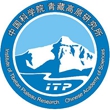Sessions 3:Life Sciences
Muming Poo

Character introduction
Mu-ming Poo is the founding and current director of the Institute of Neuroscience, Chinese Academy of Sciences, director of CAS Center for Excellence in Brain Science and Intelligence Technology, and Paul Licht Distinguished Professor in Biology Emeritus at University of California, Berkeley. He studied physics at Tsinghua University (Taiwan) and received Ph D in biophysics from Johns Hopkins University. He had served on the faculty of University of California at Irvine, Yale University, Columbia University, and University of California at San Diego, and University of California, Berkeley. He has made seminal contributions in studying neuronal differentiation, axon guidance and synaptic plasticity. He is a member of Academia Sinica, US National Academy of Sciences, Chinese Academy of Sciences, and Hong Kong Academy of Science. He had received Ameritec Prize (2001), Docteur Honoris Causa from Ecole Normale Supérieure, Paris (2003), Hong Kong University of Science and Technology (2014) and Claude Bernard University of Lyon (2018), P. R. China International Science & Technology Cooperation Award (2005), Qiushi Distinguished Scientist Award (2011), and Gruber Neuroscience Prize (2016). He is currently an editorial board member of Neuron, Editor of Developmental Neurobiology, and Executive Editor-in-Chief for National Science Review.
Topic: From Brain Science to Brain-Machine Intelligence Technology
Abstract Understanding the structure and operating principles of the human brain represents an ultimate challenge to the human understanding of nature, a scientific frontier with no boundary in sight. Yet machines with intelligence, a product of human brain, are producing sweeping impact on all aspects of the human society. There are two areas of brain-machine intelligence technology that are of immediate concerns to human society: the brain-machine interface and brain-inspired new intelligence technology. In this presentation, I will summarize my perspectives on the development in these two areas, within the context of China’s medium- to long-term strategic plans for frontier science and technology, in particular China Brain Project (known as “Brain Science & Brain-Inspired Technology Project 2035”) and the societal needs of China and the developing world at large. Brain-machine interface for monitoring and modulating brain functions promises new treatments of brain disorders. Brain-inspired technologies, including machine learning software and brain-inspired computing hardware, are changing the landscape of all professional activities - from commerce, education, manufacture, to legal and medical practices. Such advances will inevitably be accompanied by serious ethical and social issues that few societies are prepared for. Furthermore, the increasing globalization of economic and S&T progress may result in distinct consequences among societies of diverse economic, cultural and religious backgrounds. Discussion on the ethical and social impacts of cutting-edge brain science and brain-machine intelligence technology is imminent, and consensus at the international level needs to be reached for achieving a balance between frontier S&T pursuits and societal needs/concerns, as well as realistic solutions to various issues unique to individual societies.
Previous Colin L. Masters








